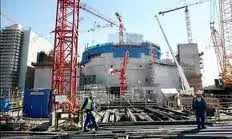
Japan may set up new atomic regulatory body
A new law requires the setting up a new nuclear regulator in Japan around September.
The law was approved by parliament's lower house after months of delay as part of a drive to improve safety and restore public trust after the Fukushima nuclear accident.
There were cozy ties between regulators, politicians and utilities - known as Japan's "nuclear village" - that experts say were a major factor in the failure to avert the crisis.
The legislation, however, swiftly came under fire for appearing to weaken the government's commitment to decommissioning reactors after 40 years in operation, even as it drafts an energy program to reduce nuclear power's role.
Under a deal, the new regulatory commission could revise a rule limiting the life of reactors to 40 years in principle.
Public opposition to building new atomic plants is strong, so extending the life of Japan's aged reactors is one key to maintaining a role for nuclear power. More than a dozen of the country's 50 reactors are at least three decades old, with three already operating for about 40 years.
The new law, expected to be approved by the upper house, would create a five-member independent nuclear regulatory commission and a nuclear regulatory agency to do the work of the trade ministry's Nuclear and Industrial Safety Agency and the cabinet's oversight commission.
Some local authorities had cited the new regulator as a precondition for restarting Japan's idled reactors.
For more.



















 Advertise
Advertise







